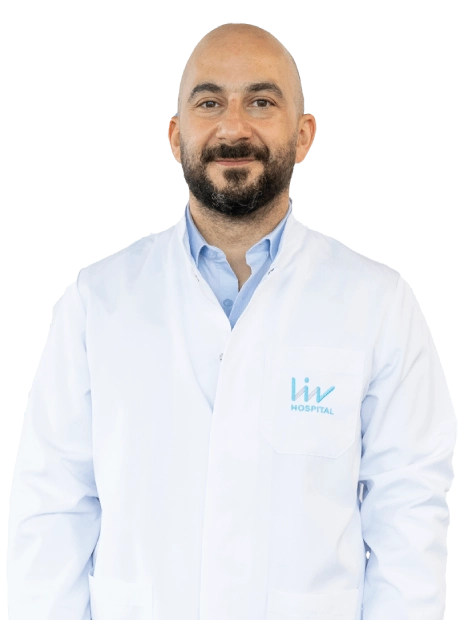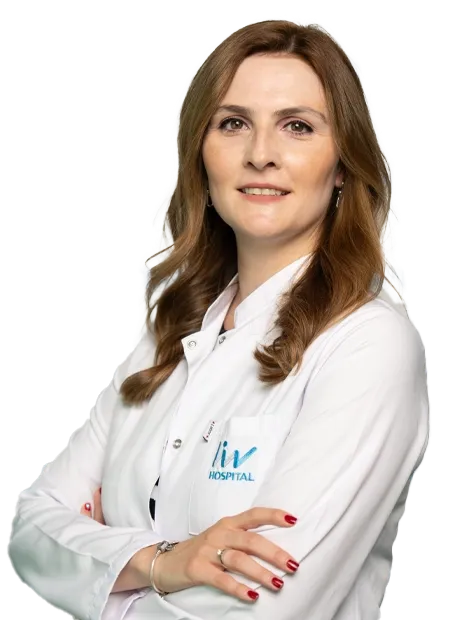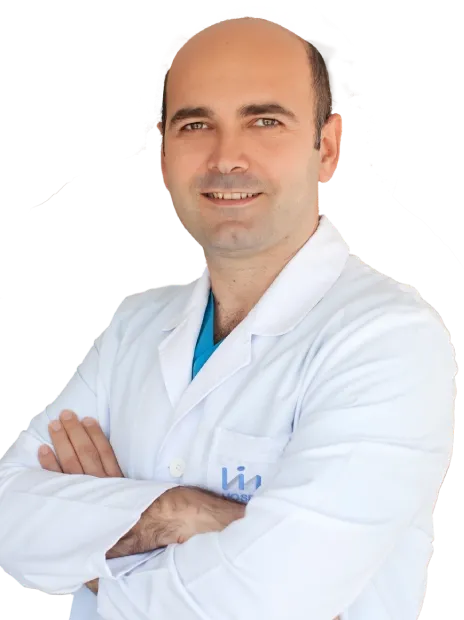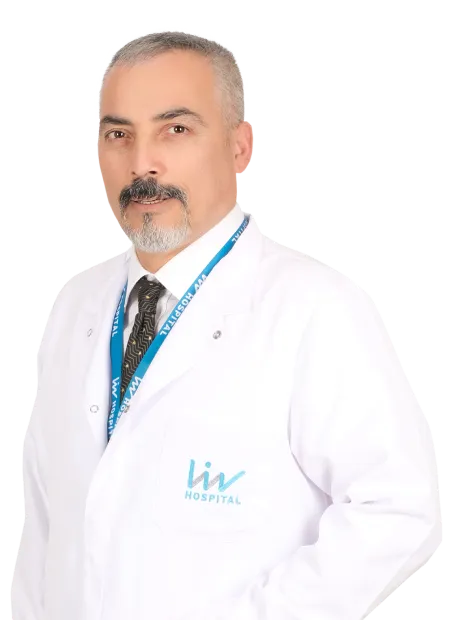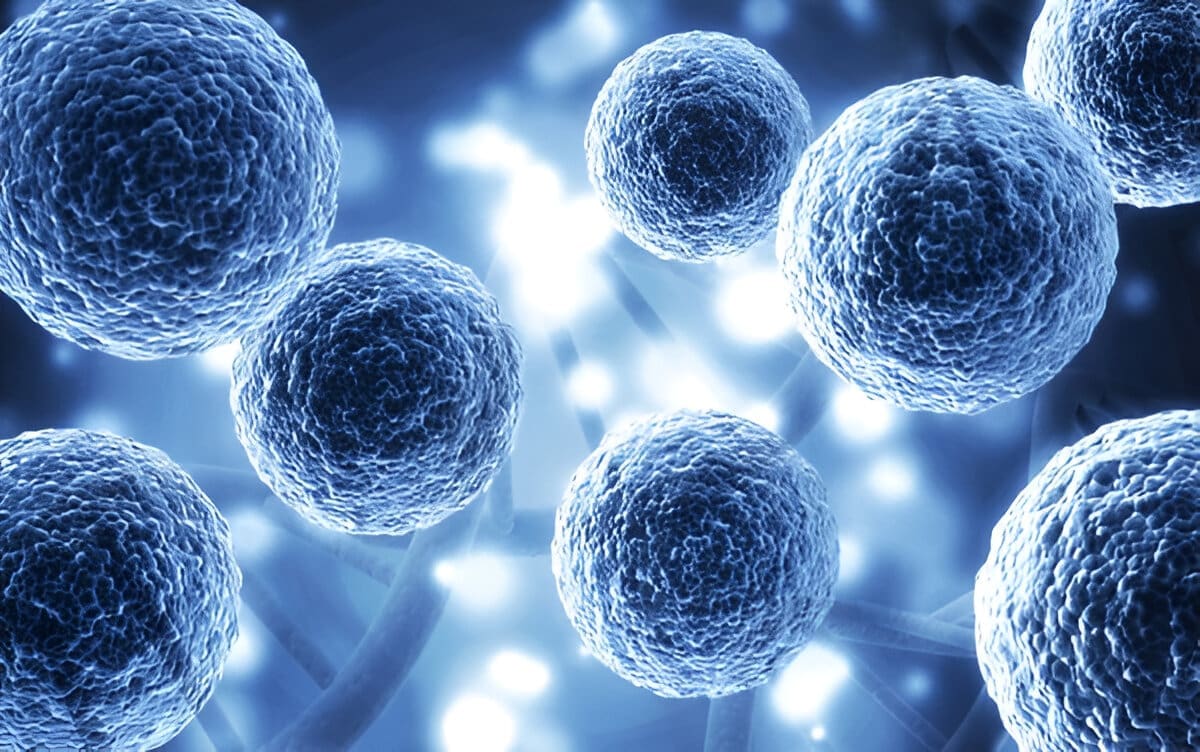
Stem cells are the basic building blocks of our bodies. They can turn into different tissues like the heart, muscle, and bone. These cells are key to keeping us healthy by regenerating damaged tissues and helping our bodies fix themselves.
Nutrient-rich foods can help activate stem cells, enhancing the body’s natural healing capacity. Some foods are especially good for keeping stem cells healthy, which can lead to better health. When considering how to generate stem cells through diet, it’s important to focus on a balanced approach that includes a variety of beneficial foods.
Key Takeaways
- Stem cells are essential for maintaining overall health.
- A diet rich in nutrients can help activate stem cells.
- Certain foods support stem cell health and cellular regeneration.
- A healthy diet is crucial for overall well-being.
- Stem cell nutrition plays a vital role in maintaining healthy tissues.
Understanding Stem Cells and Their Importance
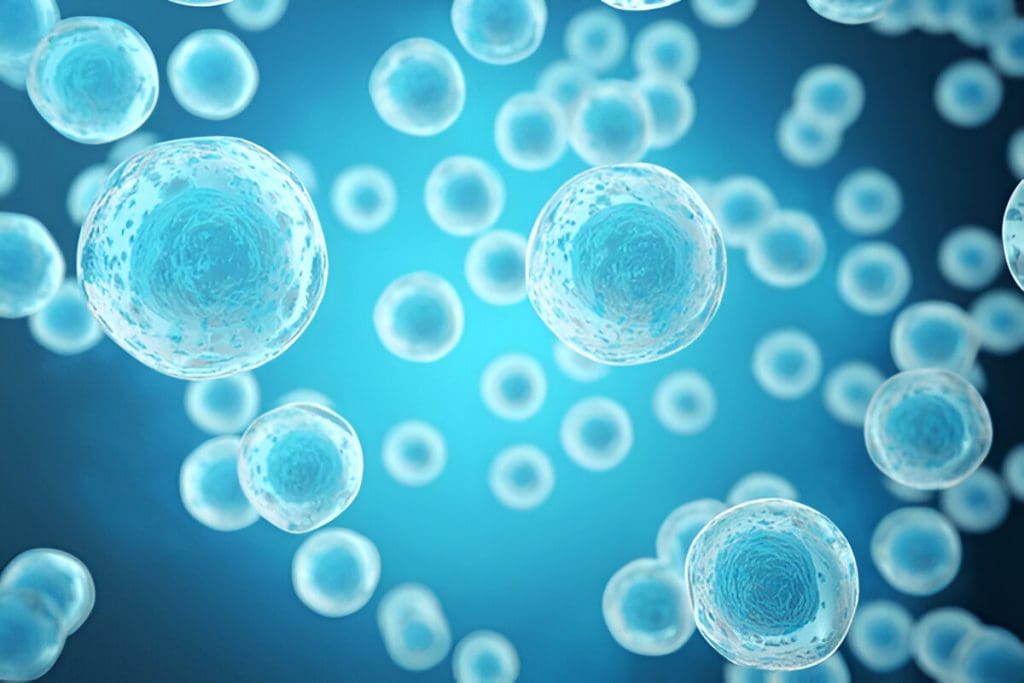
Stem cells are key to keeping our bodies healthy and healing from injuries. They are special cells that can turn into different types of cells. These cells make up our tissues and organs.
What Are Stem Cells and How Do They Function?
Stem cells can grow into many cell types in our bodies. They act like an internal repair system. They keep dividing to replace other cells as long as we’re alive.
Key characteristics of stem cells include:
- Self-renewal: The ability to renew themselves through cell division.
- Differentiability: The capacity to differentiate into specialized cell types.
The Role of Stem Cells in Cellular Regeneration
Stem cells are vital for our body’s repair. They help grow new tissues and organs. This keeps our body in balance and fixes damaged cells.
| Tissue/Organ | Role of Stem Cells |
| Skin | Regeneration of skin cells, aiding in wound healing. |
| Bone Marrow | Production of blood cells, including red blood cells, white blood cells, and platelets. |
| Gut | Renewal of the epithelial lining, maintaining the integrity of the gastrointestinal tract. |
Why Activating Stem Cells Naturally Matters
As we get older, we have fewer stem cells. This makes healing harder. It’s important to activate stem cells naturally to stay healthy.
To activate stem cells naturally, eat well and live a healthy lifestyle. Avoid things that harm stem cell function. This helps our body repair and grow tissues better.
The Science Behind How to Generate Stem Cells
Diet is key in making stem cells. These cells help our bodies fix and grow back. Knowing how to help them is important for staying healthy.
Natural Stem Cell Production in the Body
Our bodies can make stem cells on their own. These cells help keep tissues healthy and fix damaged ones. Natural stem cell production depends on genes, hormones, and the environment.
Stem cells wait in special spots in our bodies. They wake up when our tissues get damaged or need to grow back. This natural process keeps our bodies working right.
Factors That Influence Stem Cell Activity
Things like age, lifestyle, and what we’re exposed to can affect stem cell activity. As we get older, our stem cells may not work as well. This can lead to aging and diseases.
What we eat, how much we exercise, and how stressed we are also matter. For example, too much stress can hurt stem cells. But, exercising regularly can help them work better.
How Diet Impacts Stem Cell Function
What we eat is very important for stem cell function. Some foods help stem cells, while others don’t. Foods full of antioxidants, omega-3s, and polyphenols are good for stem cells.
Eating too much junk food and sugar can harm stem cells. It can cause inflammation and stress. So, eating healthy, whole foods is key for keeping stem cells healthy and us feeling good.
Antioxidant-Rich Foods That Support Stem Cell Health
A diet full of antioxidants is key for stem cell health. Antioxidants shield stem cells from damage caused by oxidative stress. Eating foods rich in antioxidants helps support stem cell function and overall health.
Berries and Their Stem Cell Activating Properties
Berries are superfoods for antioxidants. Blackberries, goji berries, pomegranate, blueberries, and raspberries are tasty and full of antioxidants. They boost stem cell function by fighting off oxidative damage.
Dark Leafy Greens and Cellular Regeneration
Dark leafy greens like spinach, kale, and collard greens are antioxidant powerhouses. They’re packed with vitamins A, C, and E, and minerals. These nutrients protect stem cells and aid in cellular regeneration. Adding dark leafy greens to your meals is great for stem cell health.
Colorful Vegetables and Their Stem Cell Benefits
Colorful veggies like bell peppers, carrots, and tomatoes are antioxidant-rich. They contain lycopene and beta-carotene, which fight oxidative stress and inflammation. Eating a variety of colorful vegetables supports stem cell health and boosts overall well-being.
Omega-3 Rich Foods for Stem Cell Activation
Omega-3 foods are key for activating stem cells, which is vital for health. Stem cells can turn into different types of cells to fix or replace damaged tissues. This process is crucial for keeping cells regenerating and the body healthy.
Eating foods rich in omega-3 fatty acids, like Eicosapentaenoic acid (EPA) and Docosahexaenoic acid (DHA), helps a lot. These fats are anti-inflammatory and good for the heart and brain.
Fatty Fish and Their Impact on Stem Cells
Fatty fish like salmon, mackerel, and sardines are full of omega-3s. They taste great and are good for stem cells. The omega-3s in these fish fight inflammation, helping stem cells work better.
Plant-Based Sources of Omega-3s
If you eat plants, you can still get omega-3s. Chia seeds, flaxseeds, and walnuts have Alpha-linolenic acid (ALA), a type of omega-3. ALA isn’t as direct as EPA and DHA, but it’s still good for health and can turn into EPA and DHA in the body.
How Omega-3s Support Cellular Health
Omega-3s are good for cells in many ways. They keep cell membranes strong, help reduce inflammation, and support stem cells. Eating foods rich in omega-3s helps activate stem cells and boosts overall health.
Polyphenol-Rich Foods That Boost Stem Cell Production
Eating foods rich in polyphenols can help boost stem cell production. Polyphenols are nutrients found in plants that are good for health. They help make stem cells work better.
Green Tea and Its Stem Cell Enhancing Effects
Green tea is full of polyphenols, especially catechins. These help stem cells stay healthy. The antioxidant properties in green tea protect stem cells, helping them grow and multiply.
Drinking green tea can increase stem cell production. This can help your overall health and help tissues heal.
Dark Chocolate as a Stem Cell Activator
Dark chocolate is rich in flavonoids, which are good for stem cells. Flavonoids in dark chocolate help the heart and may boost stem cell function.
Eating dark chocolate in small amounts can support stem cell production. Make sure to pick dark chocolate with lots of cocoa for the best benefits.
Red Wine and Resveratrol’s Impact on Stem Cells
Red wine has resveratrol, a polyphenol with health benefits. Resveratrol can activate pathways that help stem cells stay healthy and live longer.
But, drinking red wine should be in moderation because of the alcohol. The resveratrol in it can still help increase stem cell production and improve cell health.
Herbs and Spices That Increase Stem Cells Naturally
Herbs and spices have been used for centuries. Recent research shows they can help with stem cell health. They add flavor and offer health benefits, like boosting stem cell regeneration.
Turmeric and Curcumin’s Effect on Stem Cell Activation
Turmeric is a spice with a powerful compound called curcumin. Curcumin has anti-inflammatory and antioxidant properties. It can help activate stem cells, leading to tissue regeneration.
Curcumin in turmeric affects stem cell function by modulating important pathways. Adding turmeric to your diet can increase your stem cell count and improve health.
Ginger and Its Cellular Regeneration Properties
Ginger is known for its medicinal benefits, including supporting cellular regeneration. Ginger contains compounds like gingerol, which have anti-inflammatory effects. These effects help create a good environment for stem cell activation.
Eating ginger can reduce oxidative stress and inflammation. These factors harm stem cell health. Ginger helps create a healthy environment for stem cell regeneration.
Other Beneficial Herbs for Stem Cell Health
Other herbs and spices also support stem cell health. These include:
- Cinnamon, which has anti-inflammatory properties.
- Rosemary, known for its antioxidants that support cellular health.
- Garlic, which contains compounds that may aid in stem cell activation.
Adding these herbs and spices to your meals can naturally support stem cell health.
The Role of Fasting in Stem Cell Activation
Fasting and stem cell activation are linked in exciting research. Studies show fasting boosts stem cell growth and regeneration.
Intermittent Fasting and Stem Cell Growth
Intermittent fasting sparks quick cell growth and stem cell activity. MIT News reports it increases stem cell regeneration. This happens through pathways that help stem cells grow and change.
Extended Fasting Protocols for Stem Cell Regeneration
Extended fasting is also studied for stem cell benefits. At Columbia University Medical Center, research found it makes old stem cells work better. This is due to autophagy, a cleaning process in cells.
How to Fast Safely for Optimal Stem Cell Benefits
Fasting is good for stem cells, but it must be done safely. Here are some tips for safe fasting:
| Fasting Method | Duration | Precautions |
| Intermittent Fasting | 12-24 hours | Stay hydrated, listen to your body |
| Extended Fasting | 48-72 hours | Consult a healthcare professional, monitor health markers |
Knowing about fasting methods helps you choose wisely. This way, you can support your stem cells safely.
Supplements That Support Stem Cell Production
Supplements can help a lot when it comes to stem cell health. They offer extra support that goes beyond just eating right. Some supplements are especially good for keeping stem cells healthy and active.
Vitamin D and Stem Cell Health
Vitamin D is key for strong bones, but it’s also important for stem cells. Research shows vitamin D helps control stem cell activity. It’s important to get enough vitamin D from the sun, food, or supplements for stem cell health.
Key benefits of vitamin D for stem cells include:
- Regulation of stem cell differentiation
- Support for the immune system
- Potential enhancement of stem cell mobilization
Specialized Stem Cell Activator Supplements
There are special supplements for stem cell activation too. These supplements have natural compounds that help stem cells. For instance, some plant extracts boost stem cell growth and change.
“The use of specific nutritional supplements can provide a valuable strategy for supporting stem cell health and potentially enhancing regenerative capacity.”
Natural Compounds That Enhance Stem Cell Function
Many natural compounds can help stem cells work better. Here are a few:
- Curcumin, found in turmeric, which has anti-inflammatory properties
- Resveratrol, present in red wine, known for its antioxidant effects
- Omega-3 fatty acids, which support overall cellular health
Adding these compounds to your diet or supplements can help stem cell health.
Foods to Avoid That May Inhibit Stem Cell Function
Knowing which foods to avoid is key for healthy stem cells. A balanced diet with nutrients helps stem cells work well. But, some foods can harm them.
Processed Foods and Their Negative Impact
Processed foods have unhealthy fats, salts, and sugars. These can cause inflammation and oxidative stress. These issues hurt stem cell function. Avoiding processed foods is important for stem cell health.
Stay away from packaged snacks, frozen meals, and processed meats. Choose whole foods like fruits, veggies, and lean proteins instead.
Sugar and Its Effect on Cellular Health
Too much sugar can damage cells and harm stem cells. Reducing sugar intake is crucial.
Limit sugary drinks and desserts. Choose natural sweetness from fruits instead.
Inflammatory Foods That Damage Stem Cells
Some foods can cause or worsen inflammation, harming stem cells. Foods high in saturated fats, trans fats, and refined carbs are culprits.
- Limit fried foods and baked goods.
- Avoid foods with trans fats, found in processed snacks.
- Reduce refined grains and sugars.
Being aware of these foods and making smart choices can help stem cell health and overall well-being.
Creating a Stem Cell-Friendly Meal Plan
To make the most of stem cells, it’s key to eat the right foods every day. A good diet boosts stem cell production and health.
Breakfast Options for Stem Cell Activation
Begin your day with a breakfast that helps stem cells grow. Choose foods high in antioxidants and omega-3s.
- Berries with Nuts and Seeds: Blueberries, walnuts, and chia seeds are full of antioxidants and healthy fats.
- Green Smoothie: Spinach, avocado, and green tea make a nutrient-rich breakfast for stem cell health.
- Oatmeal with Fresh Fruits: Steel-cut oats, bananas, and honey give you energy and fiber.
Lunch and Dinner Ideas Rich in Stem Cell Boosting Foods
For lunch and dinner, eat colorful veggies, lean proteins, and healthy fats. This helps activate stem cells.
- Grilled Salmon with Roasted Vegetables: Salmon’s omega-3s go well with roasted veggies like broccoli and carrots.
- Quinoa Salad with Dark Leafy Greens: Quinoa, kale, and cherry tomatoes with citrus vinaigrette is a nutritious meal.
- Turmeric Chicken with Brown Rice and Steamed Greens: Turmeric’s curcumin fights inflammation and supports stem cells.
Snacks and Beverages That Support Cellular Regeneration
Right snacks and drinks also help stem cell health.
- Green Tea: Its antioxidants support cellular regeneration.
- Dark Chocolate: In small amounts, it has flavonoids for heart health and stem cells.
- Nuts and Seeds: Almonds, pumpkin seeds, and sunflower seeds are full of healthy fats and antioxidants.
Adding these foods to your diet helps activate stem cells and improves health.
Lifestyle Factors That Complement Dietary Approaches
To keep stem cells healthy, we need to think about more than just what we eat. Exercise, sleep, and managing stress are key. These lifestyle choices can help our bodies use nutrients better.
Exercise and Its Impact on Stem Cell Mobilization
Exercise is very important for stem cell health. Physical activity helps move stem cells around the body. This makes them better at fixing and growing new tissues.
Exercise also releases growth factors. These factors help stem cells grow and work better.
- Aerobic exercises, such as running or cycling, improve cardiovascular health and enhance stem cell mobilization.
- Resistance training, like weightlifting, can also stimulate stem cell activity by promoting muscle growth and repair.
- Flexibility and stretching exercises, such as yoga, contribute to overall physical function and may support stem cell health indirectly.
Sleep Quality and Stem Cell Regeneration
Good sleep is crucial for stem cell health. Poor sleep can hurt stem cell function.
- Keeping a regular sleep schedule helps the body stay healthy.
- A cool, dark bedroom helps you sleep better.
- Staying away from caffeine and screens before bed also improves sleep.
Stress Management for Optimal Stem Cell Function
Too much stress is bad for stem cells. Managing stress is key for stem cell health. Stress hormones can slow down stem cells.
- Meditation and mindfulness reduce stress and improve well-being.
- Doing things you enjoy can help lower stress.
- Having support from loved ones or groups is also important.
Adding these lifestyle habits to our daily lives can boost stem cell health. A balanced life with exercise, good sleep, and stress control helps our bodies heal and grow.
Potential Limitations and Realistic Expectations
Diet plays a big role in activating stem cells, but it’s important to know its limits. While eating right can help stem cells, we must set realistic goals.
Understanding the Limits of Dietary Approaches
Diet can greatly affect stem cell function, but it’s not everything. Foods and nutrients can turn on stem cells, but how much depends on many factors.
“The impact of diet on stem cell health is a complex interplay of various nutrients and bioactive compounds that can modulate stem cell function.”
Eating a balanced diet with antioxidants, omega-3s, and polyphenols helps stem cells. But, how well it works depends on age, health, and lifestyle.
| Factor | Influence on Stem Cell Health | Dietary Intervention |
| Age | Stem cell function declines with age | Increased intake of antioxidant-rich foods |
| Health Conditions | Chronic diseases can impair stem cell function | Tailored dietary plans addressing specific conditions |
| Environmental Stressors | Exposure to pollutants can damage stem cells | Consumption of foods high in antioxidants and omega-3 fatty acids |
When to Seek Medical Intervention
Diet is great, but sometimes, you need a doctor. If you’re really sick or diet doesn’t help, see a doctor.
Medical intervention is needed for:
- Severe stem cell dysfunction
- Chronic diseases that significantly impair stem cell health
- Genetic disorders affecting stem cell function
Combining Natural Methods with Conventional Treatments
Using diet and medicine together is a smart plan. It can make treatments work better and improve health.
Knowing diet’s limits and when to see a doctor helps manage stem cell health. Mixing natural and medical treatments can lead to better results.
Conclusion
Adding stem cell-friendly foods, supplements, and lifestyle habits to your day can boost your health. A mix of diet, natural methods, and lifestyle is best for stem cell health. This approach helps your cells work better.
Eating foods high in antioxidants, omega-3s, and polyphenols can wake up stem cells. Herbs like turmeric and ginger also help stem cell health.
Regular exercise, good sleep, and managing stress are key for healthy stem cells. These habits, combined, help keep your health strong. They might even lower the risk of chronic diseases.
While diet and lifestyle are important for stem cell health, it’s good to know their limits. Making smart choices and talking to doctors can help you use natural methods to support your health.
FAQ
How does stress management impact stem cell health?
Managing stress is vital for stem cell health. Too much stress can hurt stem cells and slow down cell growth.
What is the role of omega-3s in stem cell health?
Omega-3s are key for stem cell health and cell growth. Both fish and plant-based omega-3s are good.
Can stem cells be generated at home?
You can’t make stem cells at home like in a lab. But you can help your body by eating right and living healthy.
What are the best herbs for cell regeneration?
Herbs like turmeric and ginger help grow cells and support stem cells.
How can I increase my stem cells naturally?
Boost stem cells naturally by changing your diet, lifestyle, and using supplements that help stem cells.
Can I combine natural methods with conventional treatments for stem cell health?
Yes, mixing natural ways with medical treatments can work well. But always talk to a doctor first.
When should I seek medical intervention for stem cell-related issues?
See a doctor if you have health problems linked to stem cells. Or if you’re thinking about stem cell treatments.
What are the limitations of dietary approaches to supporting stem cell health?
Diet helps, but it’s not everything. Be realistic and consider other treatments if needed.
Can lifestyle factors impact stem cell health?
Yes, lifestyle matters a lot. Exercise, sleep well, and manage stress to help stem cells.
How can I create a stem cell-friendly meal plan?
Make a meal plan with breakfast, lunch, dinner, snacks, and drinks. Choose foods that boost stem cells and help them grow.
What foods should I avoid to support stem cell health?
Avoid processed foods, sugar, and foods that cause inflammation. They can harm stem cells and slow down growth.
Are there any supplements that can support stem cell production?
Yes, vitamin D and stem cell activator supplements can help. But talk to a doctor before taking them.
Can fasting help activate stem cells?
Yes, fasting can wake up stem cells and help them grow. Both short and long fasts can help.
What foods support stem cell health?
Foods like berries, dark greens, and colorful veggies are good for stem cells. Also, eat fatty fish and plant-based omega-3s.
How can I activate my stem cells naturally?
To naturally activate stem cells, eat right and live healthy. Eat foods full of antioxidants, omega-3s, and polyphenols.
What are stem cells and how do they function?
Stem cells can turn into different types of cells in our body. They help keep us healthy and help our cells grow back.








